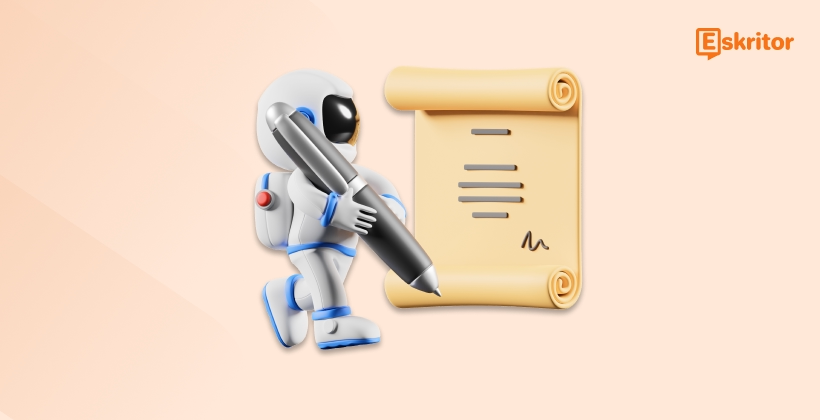Effortless Precision with AI Editing Solutions
Effortless Precision with AI Editing Solutions
Blog Article
The Future of AI Writing Technology Explained
As artificial intelligence (AI) evolves, it continues to revolutionize exactly how we method contemporary editing practices. From grammar modification tools to sophisticated content era platforms, AI Editing is reshaping just how writers, authors, and designers improve their work. That blog explores the position AI plays in modern editing and the affect it's across industries.

AI-Powered Resources Primary the Charge
AI-powered instruments are becoming an crucial part of modifying workflows. Application fueled by normal language running (NLP) and machine understanding can do responsibilities like grammar checks, stylistic suggestions, and sentence restructuring with incredible speed and accuracy.
As an example, AI-based grammar checkers can identify problems that the human eye may possibly neglect, such as for instance subject-verb contract issues or lost modifiers. Likewise, style innovations developed by AI make certain that tone and flow arrange with the intended market, that is important for professional editors.
These resources aren't only limited by standard grammar corrections. They are designed for increasing readability, transforming inactive style to active voice, and even paraphrasing whole paragraphs without changing the meaning.
Effectiveness Meets Time Savings
Studies reveal that the usage of AI resources may lower editing time by around 30%. Rather than poring around every sentence manually, authors can emphasis their attempts on creative and proper aspects of content. That change allows specialists to handle higher sizes of text in shorter periods, that is especially important for industries like publishing and digital marketing.
Also, predictive AI features may spotlight continuing problems, supporting authors enhance their skills around time. For organizations, this means fewer methods used on revisions and more finished components from the start.
Improving Supply and Globalization
AI's position in modern modifying extends beyond efficiency. Advanced interpretation and localization resources let creators to adapt material effortlessly for worldwide audiences, breaking down language barriers with precision. That engineering guarantees that the exact same message may resonate with countries world wide while keeping their authenticity.
AI also raises inclusivity standards by improving availability in content. For instance, calculations can recognize probably non-inclusive language and suggest alternatives. That capability enables editors to improve publishing so it resonates with varied audiences.

Striking a Stability Between AI and Individual Imagination
While AI excels in speed and reliability, it generally does not change individual editors. Models usually lack the ability to read nuance, feeling, or social situation fully. The best process mixes AI's performance with human imagination and perception, leading to truly extraordinary work.
By leveraging these technologies in modern modifying practices, designers and writers equally can generate high-quality material that aligns with the fast-paced requirements of today's electronic world. AI could be the potential of editing, but the human touch can be required for storytelling and connection. Report this page